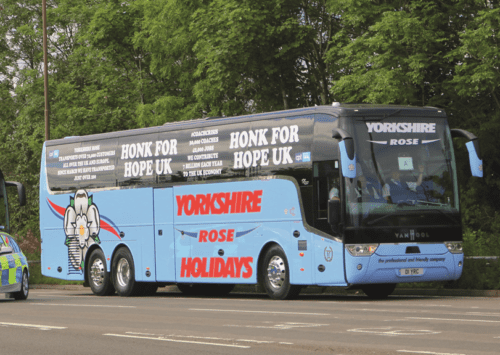
Eight out of 10 UK coach operators are family owned businesses, and changes to inheritance tax rules in the latest Budget could threaten the long-term viability of scores of firms, says the Confederation of Passenger Transport
Coach operators across Britain have warned that the long-term viability of their business is under threat from changes to Inheritance Tax announced by Chancellor Rachel Reeves, says the Confederation of Passenger Transport (CPT). With activities ranging from school buses to corporate transport, day trips and low-cost holidays, coach operators account for 450 million journeys a year, with the industry largely dominated by small and medium sized businesses, says the trade body.
According to its figures, around 85% of small and medium sized coach operators in Britain are family owned. Under changes announced in the Budget, family businesses with assets of more than £1 million will, for the first time, be subject to inheritance tax. Most coach operators own garages with substantial land for parking, in addition to vehicles themselves, and given the capital-intensive nature of the industry, most operators have assets above the new threshold, says CPT.
In response to a survey by the Confederation of Passenger Transport, 71% of coach operators said they would be affected by the change to inheritance tax rules, and 46% believe it threatens the viability of their companies. Several said they had put plans for expansion – including acquisition of new vehicles and property – on hold, the organisation reports.
Fabric of daily life
Director of Policy and External Relations Alison Edwards said: “Coaches are part of the fabric of daily life in communities across Britain – taking children to school, sports teams to matches, offering day trips and taking people on holiday. Many of these operators are long established local businesses which have been painstakingly built up over several generations. They are run by entrepreneurial families with much of their net worth tied up in garages, land and vehicles.
“The industry only recently recovered from a near death experience during the Covid-19 pandemic and is now looking at spending hundreds of millions of pounds on low-emission coaches. So it is perplexing that the Government is discouraging investment with the prospect of hefty and unaffordable inheritance tax bills, in addition to a rise in national insurance contributions. It is disappointing that this change has been announced with so little warning or consultation, prompting members to scramble to reconsider investment plans. We will be urging the Treasury to reconsider.”
According to the CPT’s figures, the coach industry directly employs 54,000 people and supports a further 27,000 jobs in its supply chain. A recent KPMG study commissioned by the CPT found that the industry generates £6.4 billion of economic value annually through employment, whilst visitors who arrive by coach spend £8.3 billion a year in destinations across Britain.

